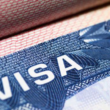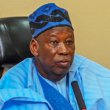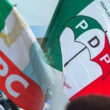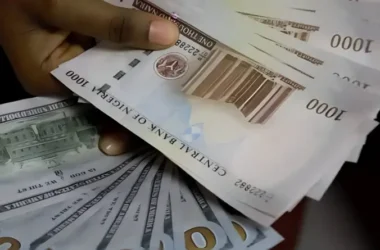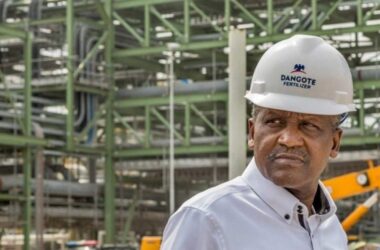Nigerians should expect an increase in petrol prices following the expiration of the Crude for Naira agreement between NNPC Limited and Dangote Refinery.
The six-month agreement, which allowed the national oil company to supply crude oil to the 650,000-barrel-per-day refinery with payments made in Naira, ended in March without renewal.
With global crude oil prices climbing, petrol prices are already rising across the country. Private oil depots have adjusted their rates, with some now selling petrol at N900 per litre, up from N890 per litre.
As a result, pump prices at filling stations have been affected, with some locations now selling petrol for as much as N960 per litre.
The latest price adjustments show differences based on location. In Lagos, the pump price stands at N930 per litre, while states in the South West such as Ogun, Oyo, Osun, Ekiti, Kwara, and Ondo are seeing rates of N940 per litre.
In the South South and South East, including Edo, Abia, Akwa Ibom, Bayelsa, Rivers, Cross River, and Enugu, petrol is now selling at N960 per litre.
In Abuja, Kaduna, Benue, Kogi, Niger, Sokoto, Kebbi, and Nasarawa, prices have risen to N950 per litre, while in states like Zamfara, Kano, Jos, Bauchi, Taraba, Adamawa, Borno, Katsina, Jigawa, Gombe, and Yobe, petrol costs N960 per litre.
The decision by Dangote Refinery to halt sales in Naira has caused concern among petroleum marketers, who warn that the pump price of petrol may continue to rise. Instead of supplying the domestic market at agreed rates, the refinery is now focusing on international exports, where crude oil and refined products are sold in dollars to cover operational costs.
According to Chinedu Ukadike, Public Relations Officer of the Independent Petroleum Marketers Association of Nigeria (IPMAN), sourcing fuel in foreign exchange will put pressure on the Naira and further increase prices at the pump.
“The pressure on the dollar will increase because it has become the means of exchange. Marketers will begin to sell petrol at filling stations in dollars. And this will have a negative impact on the prices of petroleum products across the country,” he stated.
The cost of crude oil, which is a key component in refining petrol, has increased from $70 per barrel to $75 per barrel, raising production costs for refineries, including Dangote’s $20 billion facility. Reports indicate that the refinery has not supplied petrol under the Crude for Naira deal since March 1, instead prioritizing shipments sold in dollars.
The Major Energies Association of Nigeria (MEMAN) confirmed that the landing cost of petrol—the total cost of importing and delivering petrol to Nigeria—has jumped from N797 per litre to N885 per litre in just one week. This development could lead to even higher prices for consumers in the coming months.
Experts warn that the rising cost of petrol will have a direct impact on transportation fares, food prices, and other essential goods. Billy Gillis-Harry, President of the Petroleum Products Retail Outlets Owners Association of Nigeria (PETROAN), noted that many fuel retailers are struggling with high exchange rates and distribution costs.
“There is no doubt that the upward adjustment of petrol prices would impact on transport fares, food, clothing, and other basic necessities,” he said.
The Center for the Promotion of Private Enterprise (CPPE) has also warned that the situation could worsen inflation, poverty, and economic instability. The CEO of CPPE, Dr. Muda Yusuf, pointed out that Nigeria is once again linking local fuel prices to global market rates, making affordability uncertain for many citizens.


